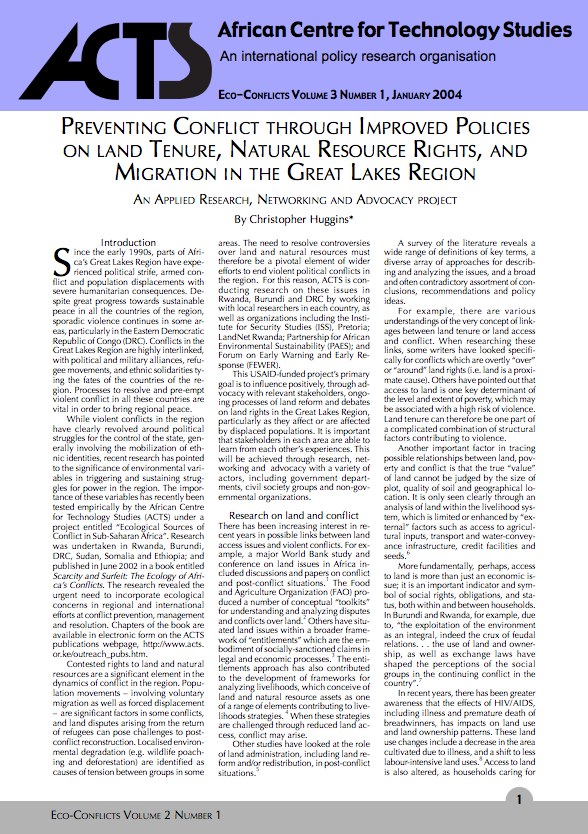Resource information
Since the early 1990s, parts of Afri-ca’s Great Lakes Region have expe-rienced political strife, armed con-flict and population displacements withsevere humanitarian consequences. De-spite great progress towards sustainablepeace in all the countries of the region,sporadic violence continues in some ar-eas, particularly in the Eastern DemocraticRepublic of Congo (DRC). Conflicts in theGreat Lakes Region are highly interlinked,with political and military alliances, refu-gee movements, and ethnic solidarities ty-ing the fates of the countries of the re-gion. Processes to resolve and pre-emptviolent conflict in all these countries arevital in order to bring regional peace.While violent conflicts in the regionhave clearly revolved around politicalstruggles for the control of the state, gen-erally involving the mobilization of eth-nic identities, recent research has pointedto the significance of environmental vari-ables in triggering and sustaining strug-gles for power in the region. The impor-tance of these variables has recently beentested empirically by the African Centrefor Technology Studies (ACTS) under aproject entitled “Ecological Sources ofConflict in Sub-Saharan Africa”. Researchwas undertaken in Rwanda, Burundi,DRC, Sudan, Somalia and Ethiopia; andpublished in June 2002 in a book entitledScarcity and Surfeit: The Ecology of Afri-ca’s Conflicts. The research revealed theurgent need to incorporate ecologicalconcerns in regional and internationalefforts at conflict prevention, managementand resolution. Chapters of the book areavailable in electronic form on the ACTSpublications webpage, https://www.acts-net.org/publications/books

